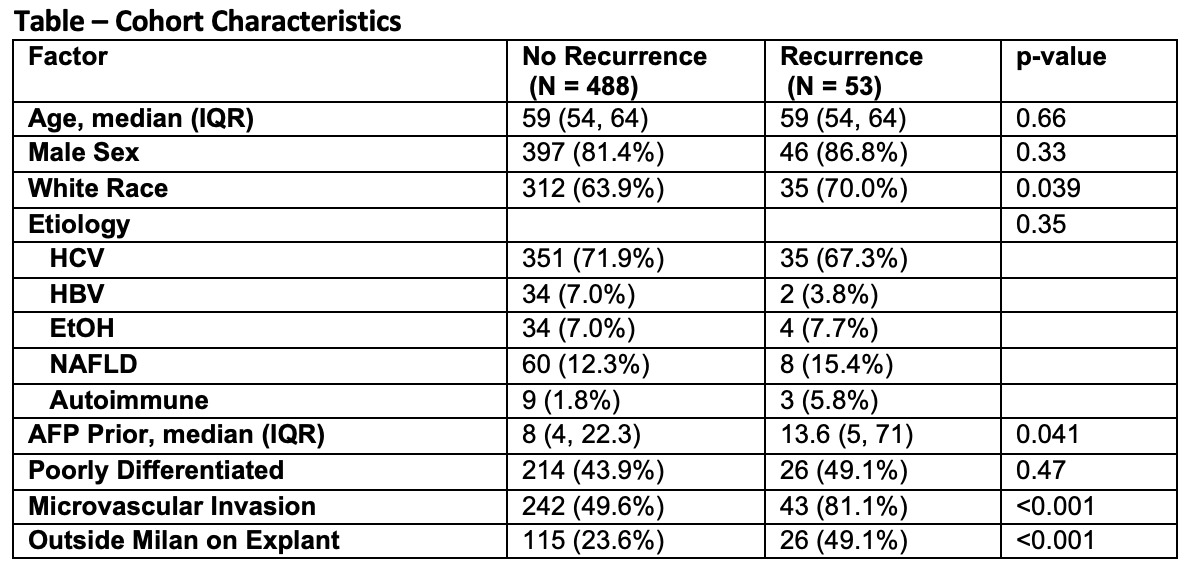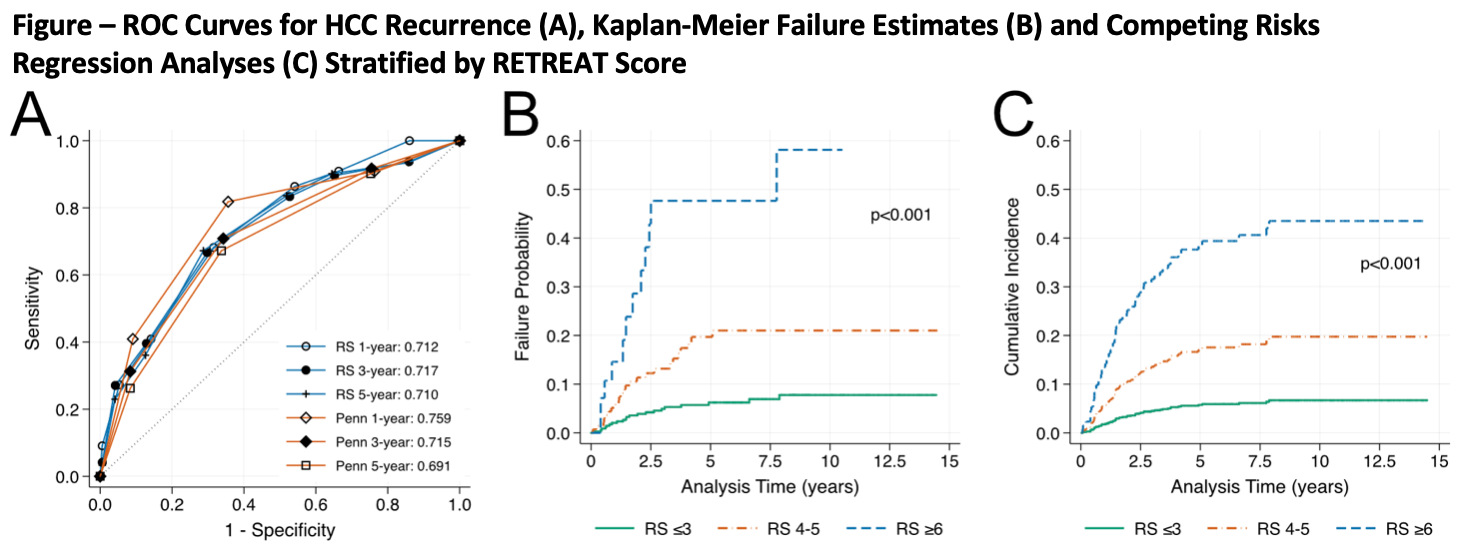Performance of the Retreat Score in Predicting Post-Transplant Hepatocellular Carcinoma Recurrence at a Large Academic Center
Hospital of the University of Pennsylvania, Philadelphia, PA
Meeting: 2020 American Transplant Congress
Abstract number: A-146
Keywords: Area-under-curve (AUC), Hepatocellular carcinoma, Post-transplant malignancy, Recurrence
Session Information
Session Name: Poster Session A: Liver: Hepatocellular Carcinoma and Other Malignancies
Session Type: Poster Session
Date: Saturday, May 30, 2020
Session Time: 3:15pm-4:00pm
 Presentation Time: 3:30pm-4:00pm
Presentation Time: 3:30pm-4:00pm
Location: Virtual
*Purpose: Post-transplant hepatocellular carcinoma recurrence (R-HCC) results in poor outcomes. The RETREAT score was recently derived to predict HCC recurrence, incorporating pre-transplant alpha fetoprotein and explant tumor characteristics (microvascular invasion, largest viable tumor diameter plus number of viable tumors). We aimed to (1) externally validate the RETREAT score in an independent academic transplant center, (2) compare this score to an existing center standard, and (3) quantify cumulative HCC recurrence stratified by RETREAT score categories.
*Methods: This was a retrospective cohort study of transplants performed for HCC at a large academic center between 2/2005 and 12/2017. Imaging for HCC surveillance was performed per institution protocol with MRI abdomen and CT chest every 6 months for the first 3 years, followed by yearly for the subsequent 2 years. Patients with macrovascular invasion or tumor at the margins on explant were excluded. We used receiver operator curves (ROC) to compare the discrimination of the RETREAT score with a summation score of microvascular invasion, poor tumor differentiation, or outside Milan criteria on explant (Penn). We plotted Kaplan-Meier curves and competing-risk adjusted cumulative incidence function curves of R-HCC over time (with death as a competing risk).
*Results: The cohort comprised 541 patients followed for median 5.20 years (interquartile range 2.76-8.46; Table). The RETREAT score had poorer short-term but superior long-term discrimination relative to the summation variable (Figure). In Kaplan-Meier and competing risks analyses, a low RETREAT score (≤3) was associated with a significantly reduced cumulative incidence of HCC recurrence relative to a mid-range (4-5) or high RETREAT score (≥6, p<0.001). Through 36 months, fewer than 5% of patients with a RETREAT score ≤3 experienced recurrence, in contrast to >30% of those with a score ≥6.
*Conclusions: The RETREAT score has good discrimination in an external cohort (AUC >0.7). Patients with a score ≤3 at the time of transplant may be eligible for lower intensity post-transplant surveillance protocols.
To cite this abstract in AMA style:
Mahmud N, Philips N, Ekpanyapong S, Prenner S, Levine M, Reddy R, Hoteit M. Performance of the Retreat Score in Predicting Post-Transplant Hepatocellular Carcinoma Recurrence at a Large Academic Center [abstract]. Am J Transplant. 2020; 20 (suppl 3). https://atcmeetingabstracts.com/abstract/performance-of-the-retreat-score-in-predicting-post-transplant-hepatocellular-carcinoma-recurrence-at-a-large-academic-center/. Accessed February 27, 2026.« Back to 2020 American Transplant Congress


